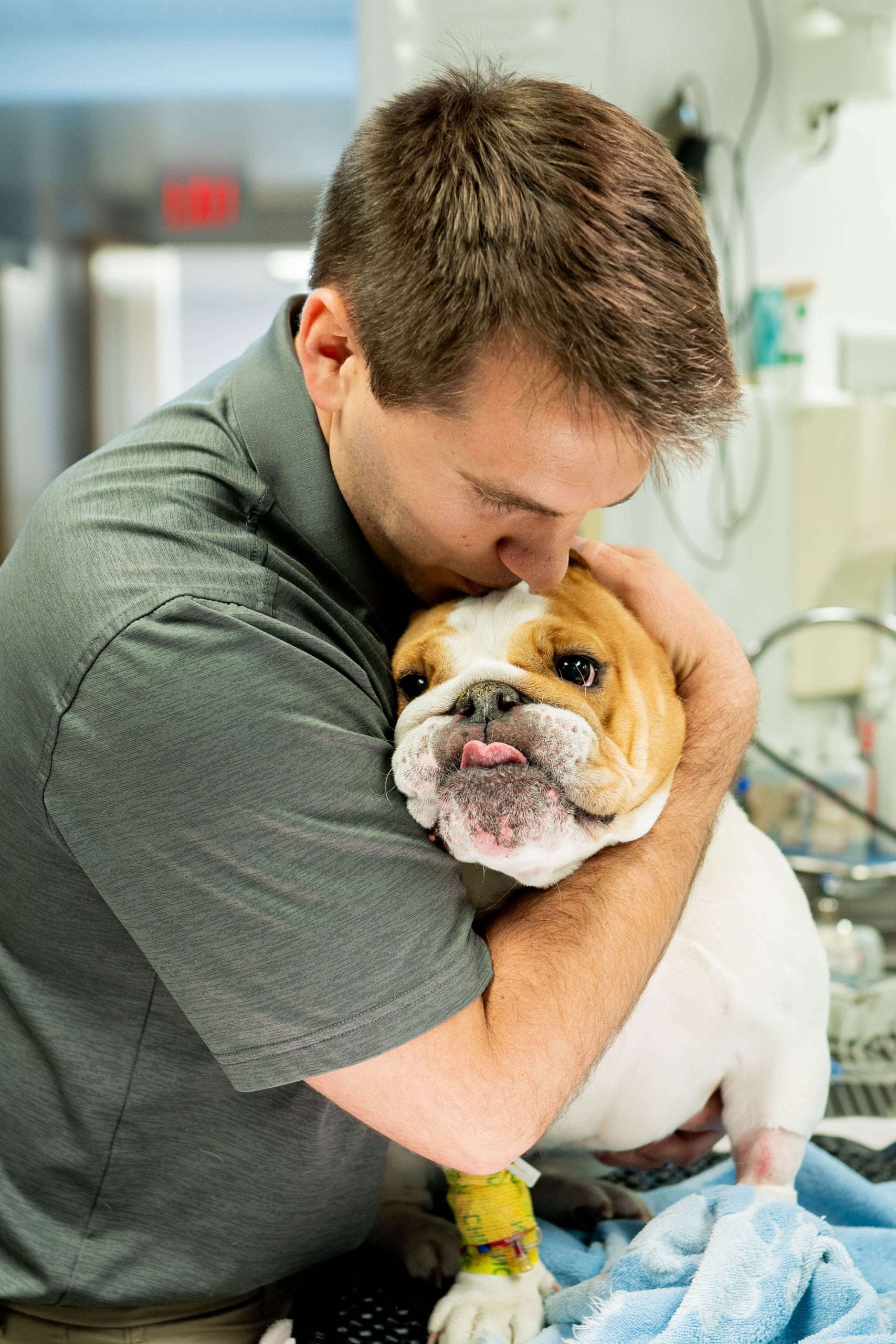When it comes to caring for our pets, the task can be daunting. What kind  of healthcare do they need? When should I take them to the vet? What kind of vaccines should they have, and when?
of healthcare do they need? When should I take them to the vet? What kind of vaccines should they have, and when?
Core vaccines– Canines
At our office, we require vaccinations. They are vital to the health of your pet, and easily prevent many different illness.
- Rabies– The Tennessee Department of Health describes rabies as “a deadly virus that is transmitted by bites from an infected animal.” The state of Tennessee requires all owners of cats and dogs to have their pets vaccinated against rabies at or after 3 months of age. By law, the vaccine for the rabies virus must be administered by a veterinarian. For puppies, the initial rabies vaccination will be good for one year. The second rabies vaccination, given one year after the first vaccine, is good for three years. For more information about the rabies laws in Knox county and the surrounding areas, click here.
- Distemper/Parvo (DHPP)– Vaccinations for canine distemper and parvovirus are most often administered together in one shot. As the vaccine for DHPP contains so many viruses, it is required to be given by a veterinarian, and the pet must be examined beforehand to ensure that they are in good health. Both the canine distemper and parvoviruses are considered extremely contageous and most often fatal. The DHPP vaccine is initially given in four boosters, administered three weeks apart, beginning at 6-8 weeks of age. The final booster will be good for one year. After a year, the three year DHPP vaccination can be administered. For more information on this vaccine, click here.
- Bordetella (Kennel Cough)– Kennel cough is a very contagious bacterial infection, but is not considered fatal. It is easily passed back and forth between dogs, especially at boarding facilities where dogs can be in close proximity to each other. This vaccine is required by most boarding facilities and grooming facilities, and is recommended by most dog parks. Most facilities will also require this vaccine to be given every six months as opposed to only once a year. This vaccine is not required to be given by a veterinarian at our hospital, and can be given by a licensed technician or an assistant instead. For more information, click here.
- Leptospirosis– The leptospirosis vaccine helps to protect your pet from contracting the leptospirosis bacteria. The bacteria is passed through infected wild animal urine, as well as soil and water that an infected animal has come in contact with. While this vaccine may not be considered a core vaccine in other parts of the country, we consider it as such, as there is a thriving wildlife population in our area. The leptospirosis bacteria can be fatal, and can also be passed from animals to humans. This vaccine is given in two parts– an initial booster, and then a one year vaccination. For more information, click here.
Core vaccines– Felines
- Rabies– Like with canine rabies, feline rabies is also required by law to be administered by a veterinarian after three months of age. While canine rabies vaccinations are often updated every three years, feline rabies vaccinations at our location are to be updated every year. While we only carry one year feline rabies vaccinations at our hospital, we can special order three year feline rabies vaccinations per request. In regards to indoor cats being vaccinated against the virus, it is required by law for all felines whether they are allowed outdoor or kept inside. For more information on the feline rabies vaccination, click here.
- Feline Distemper (FVRCP)– Feline distemper is incredibly contagious and fatal. It is required by most, or all, boarding facilities and groomers. Like the canine DHPP vaccine, it should be administered by a veterinarian after a wellness examination, to ensure that the cat is in good health. The vaccination is initially given in two boosters, given three weeks apart, and then a vaccine good for one year. At the one year mark, a three year vaccination is given. For more information on this vaccine, click here.
- Feline Leukemia (FeLV)– This vaccine is considered a core vaccine for cats that are at risk for contracting the the feline leukemia virus, such as cats that live both indoor and outdoor or that have housemates that have feline leukemia. The virus is easily spread to other cats through contact with an infected cat’s saliva. This vaccine is given in two parts– an initial booster followed by a vaccination good for one year. For more information on this vaccine, click here. Be sure to talk to your veterinarian about your cat’s risk of contracting feline leukemia.

